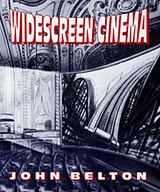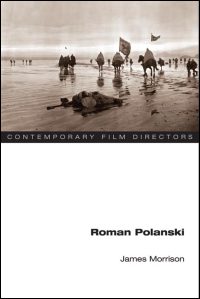Looking Awry is one I always go to when I'm working with Lacanian concepts.
Looking Awry was significant for me when I wrote Cinema of Confinement. I recommend it if you want to learn more about the intersection of psychoanalytic theory and cinema.
There are lots of great examples from movies and books to help understand these complex concepts. Žižek is not suggesting that using examples from popular culture avoids the complexity of theory. Rather, it is a way of exploring theoretical concepts, but looking at them from a different perspective--thus looking awry.
One example that stuck with me is Patricia Highsmith's "The Black House," a story about a group of men who get together at a bar and reminisce about an old house in the town that is associated with nostalgia and memories. A young engineer, who just moved into town, hears about the myth of the old house and decides to visit it. Finding nothing mysterious about it, he tells the men that it is just an old, filthy ruined house. The men freak out and attack the young engineer and windup killing him.
As Žižek explains, the young intruder reduced their fantasy space to an everyday, common reality. "He annulled the difference between reality and fantasy space, depriving the men of the place in which they were able to articulate their desires” (9).
The old house is
an empty screen for the men to project their nostalgic desires and
memories upon, which was then reduced to nothing by the engineer. Here, Žižek
draws our attention to the fantasy screen, the protective screen from
the Lacanian Real, the "thing" that haunts and disrupts the symbolic order. A point Žižek makes over and over is that if you
remove the fantasy screen, you don't get "reality." Instead, you get a
nightmarish form of reality. The fantasy screen provides a sense of reality, keeping the Real at a distance. In the case of the engineer, he unplugs the men's fantasy screen.
In Cinema of Confinement, I discuss the ending of Rope (1948), how the penthouse becomes a strange and distorted space after Rupert (James Stewart) discovers the corpse Brandon (John Dall) and Phillip (Farley Granger) had hidden throughout the dinner party.
The big window acts as a sort of fantasy screen for Brandon and Phillip, which keeps danger at a distance. But when their secret is exposed, Rupert opens the window and fires a gun, calling attention to the authorities. The space then becomes flooded with lights from a nearby neon sign, the sounds of the city amplify. The characters movements are suddenly protracted and creaturely. The orderliness of space becomes distorted as an the fantasy screen collapses.
There are lots of great examples in Looking Awry from cinema and worth checking out. Also see Enjoy Your Symptom and Žižek's book on Krzysztof Kieslowski. Of course, there is his collection of essays on Alfred Hitchcock. I also recommend Matthew Flisfeder's excellent book on Žižek's work on film.


















